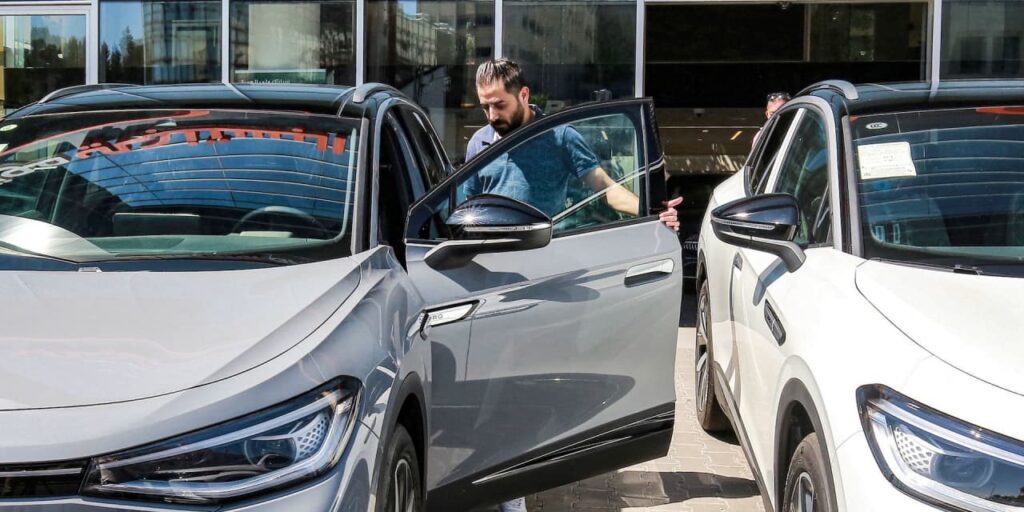Hybrids, plug-in hybrids (PHEVs), and electric cars make up a small percentage of the cars on American roads. But about half of car shoppers are considering one for their next car.
That’s among the conclusions from a new study of more than 2,000 consumers from consulting firm GBK Collective.
Researchers interviewed 2,012 consumers on their car shopping plans, finding that 14% currently own a hybrid, PHEV, or electric car (up from 9% in 2021). But 50% were considering one.
Read: 10 roadblocks to electric vehicle ownership
Few determined to buy one, many open to it
A much smaller percentage were determined to buy what GBK calls a “green vehicle.” Just 7% said they would only consider hybrids. Five percent said they would only consider electric vehicles, and only 2% said they were limiting their shopping to PHEVs. Plug-in hybrids are hybrids that can travel a certain distance (usually around 30 miles) on electric power alone before using gasoline.
But many more said they were open to buying one if it met their needs.
Researchers asked about all three kinds of cars but focused most of their questions on EVs.
Related: Here are the 10 electric vehicles that sold the most in 2023: Tesla still leads the pack
EV sales growing, but growth slowing
Electric car sales are growing in America, but the growth rate has slowed.
Just 3.2% of all cars sold in the U.S. in 2021 were EVs. In 2022, the same number was 5.8% — an increase of 2.6% of the market. In 2023, that figure grew to 7.6% — a smaller increase of just 1.8%.
Analysts from Kelley Blue Book parent company Cox Automotive expect EV sales to top 10% in 2024. But, the slowing growth rate suggests that many early adopters who were excited about EVs have bought one. Automakers will need to convince a different group of shoppers to opt in to grow sales further.
The study reinforces that idea. GBK researchers found that existing EV owners and people now considering an EV are demographically different.
EV considerers differ from current EV owners
Sixty-four percent of existing EV owners, for instance, live in urban areas. Just 38% of EV considerers do. That tracks with the slow growth of EV infrastructure outside of urban areas.
Likewise, 58% of current EV owners consider themselves early adopters of new technologies. Just 32% of those now open to buying one say the same. That suggests that early embracers of new technology, who might be more willing to put up with ownership hurdles, have already bought into the EV future. The next wave of likely buyers are more skeptical of new technology, and might have to see the hurdles lowered to make the move.
Automakers must also bring prices down to convince a new cohort of buyers. Current owners had a median budget of $59,000 for their next car. Those considering an EV today have an average spending limit of $50,000.
The price of the average EV fell by nearly a fifth in 2023 but still hasn’t hit that number. In December, EV buyers paid an average of $50,798.
You might like: 18 new EVs to watch for in 2024
The next wave of buyers is also looking for more traditional automakers to market a significant number of EVs. More EV considerers said they would buy a Toyota EV than any other brand. But Toyota
TM,
has been slow to embrace EVs. The Japanese brand offers just one EV today – the compact bZ4X SUV – and it remains a rare sight on dealer lots.
This story originally ran on KBB.com.
Read the full article here












